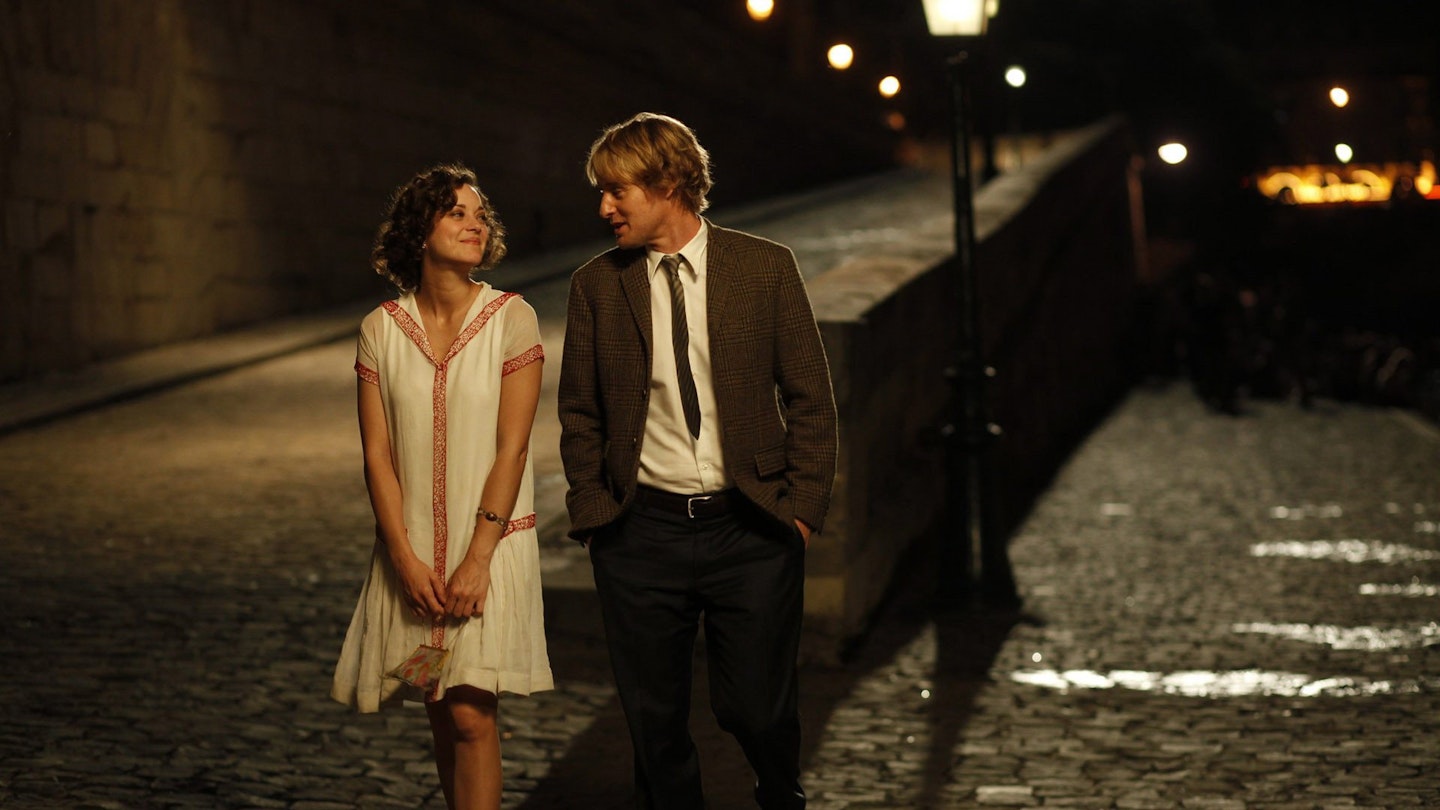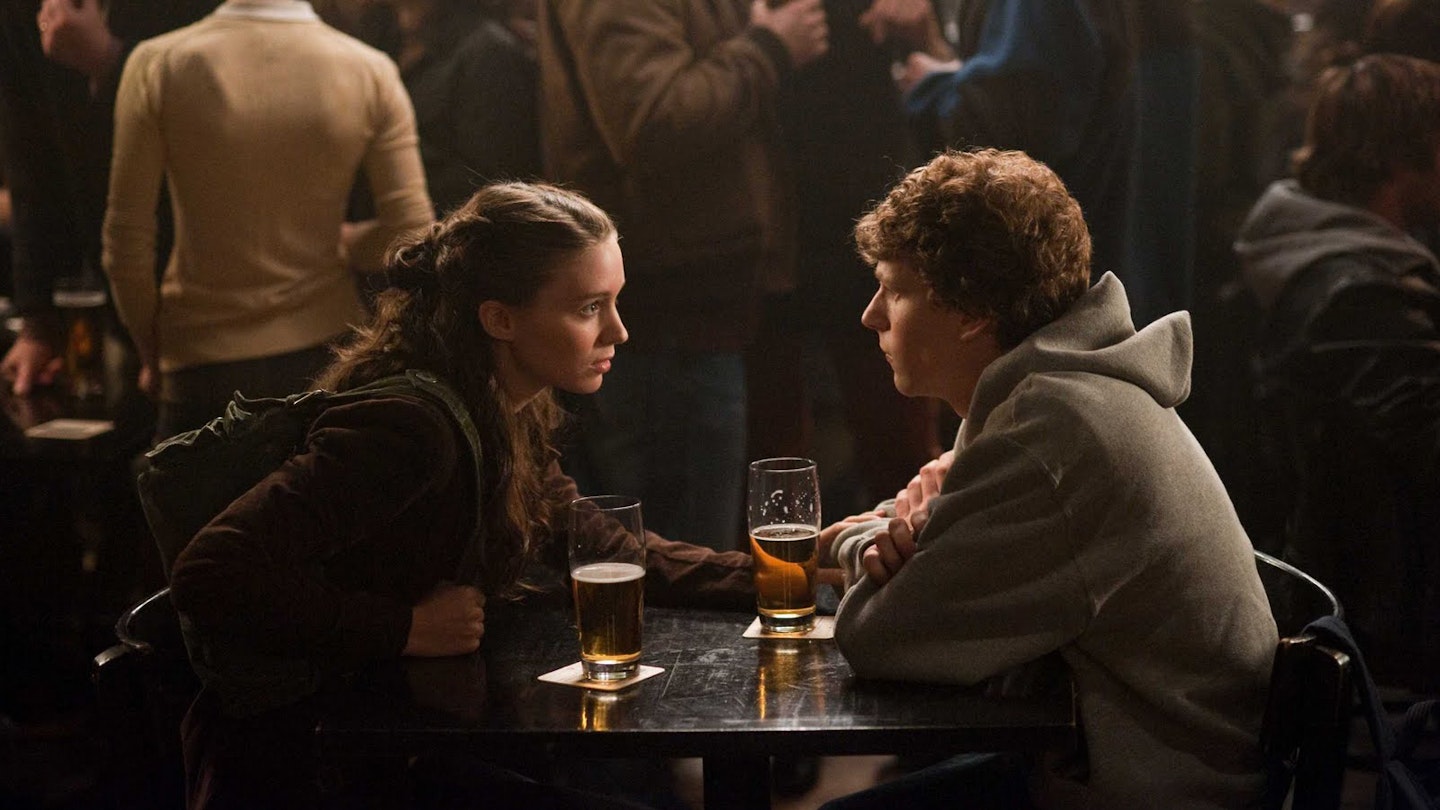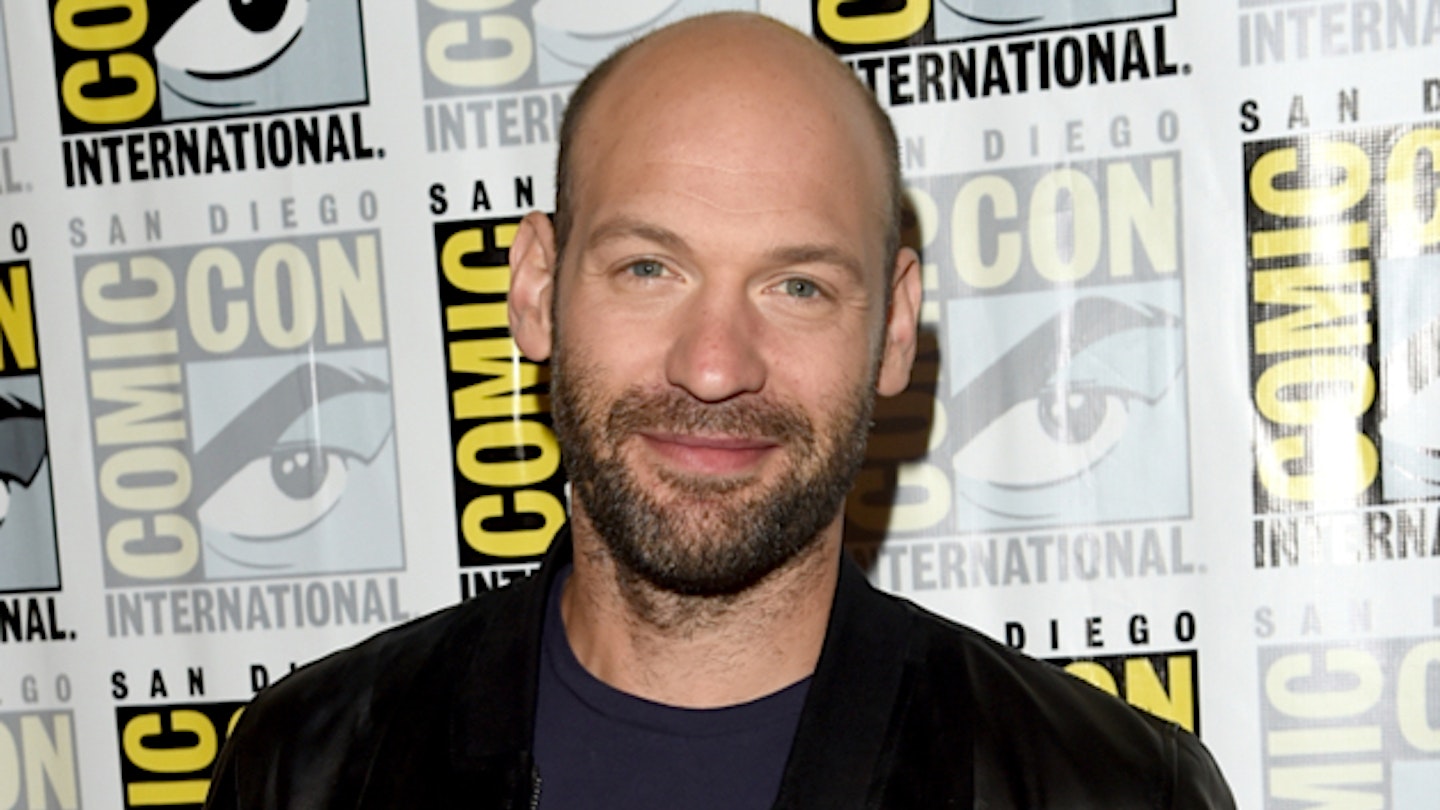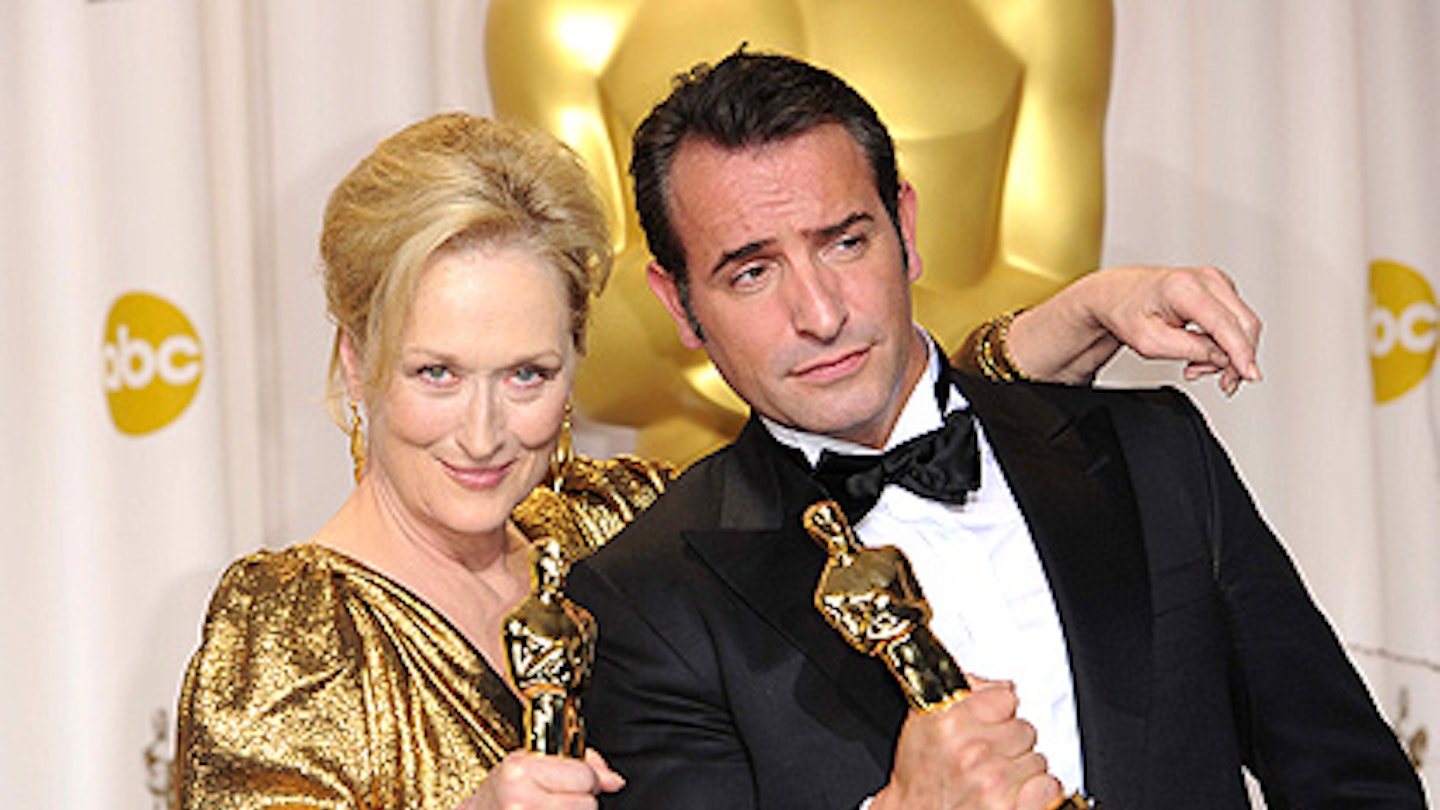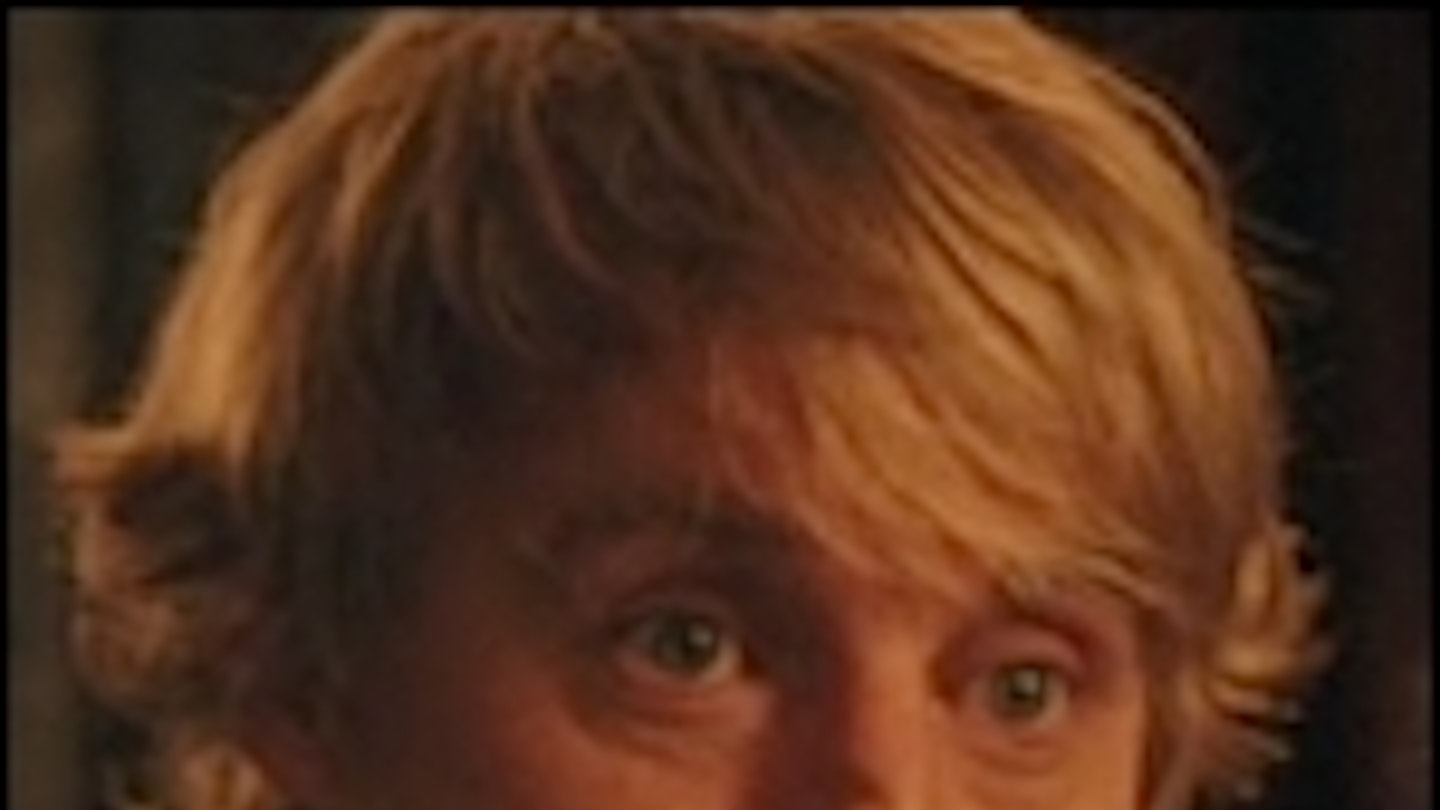Owen Wilson's Gil is a Hollywood screenwriter. Even worse, he’s a script doctor. “The studios,” we are informed by Rachel McAdams’ Inez, his superficial wife-to-be, “adore him.” A sure sign of spiritual bankruptcy. His is not a hopeless case — he aspires to write a novel set in a nostalgia shop. He just needs Paris, the real Paris, to feed his reluctant muse. Sadly, his fiancée is determined they dine with her Tea Party-leaning parents and traipse through the inevitable tourist spots. It takes a midnight stroll through the Rive Gauche to grant his wish — a miraculous trip back to the Paris of the 1920s. For what we have here is a Woody Allen time-travel movie.
Don’t look so shocked. The New York auteur has been down this avenue before, fusing literary or cinematic worlds with the real. Love And Death (Woody’s funniest? Discuss) leads a hilarious dance through the smash hits of Russian literature; Shadows And Fog (Woody’s most underrated? Discuss) gets lost in an unnamed city cloaked in German Expressionism; and The Purple Rose Of Cairo finds Jeff Daniels’ square-jawed ’30s screen hero conversing with Mia Farrow’s dowdy waitress in the stalls. Stardust Memoires, Zelig, Deconstructing Harry... the list goes on.
When you think about it, Allen’s entire worldview is a fantasy. At times, ridiculously so — Gil ends up caught between the potential affections of three stunning women, not including a brief flirtation with France’s First Lady, Carla Bruni, as a museum guide. Marion Cotillard, as former Picasso paramour Adriana, is Gil’s chief distraction, with Inez conveniently off sucking up to Michael Sheen’s pompous professor. Wilson might not have Allen’s timing, but he’s a sincere variation on the Woody-formula, adding to the relaxed mood.
With greater ease than of late, and an elegance that escaped his ragged lay-off in London, Allen has made an adorable bagatelle, soft as a daydream, happy to wear its intellectual hat at a cocked angle.
Naturally, he’s not concerned with the mechanics of time travel. Gil merely walks the boulevards until midnight chimes and he is picked up by another fabled artist (“Eliot?? T. S. Eliot?”) to dwell again amongst the famed cliques of the Jazz Age. Paris, of any era, comes beautifully dressed in mottled cliché: damp cobblestones, twinkling Eiffel, streetlamps casting an orange glow across the Seine.
What makes the central gag so buoyant is that Allen’s icons are trapped in their own clichés. Corey Stoll, as robust, handsome Hemingway, extols flinty aphorisms (“All men fear death!”). As surrealist Dalí, Adrien Brody is dutifully potty, exclaiming “Da-lee” in a chorizo-thick accent as if expecting applause. Allison Pill, lately Scott Pilgrim’s drummer, suffers suitable fits of emotional instability as Zelda Fitzgerald, F. Scott’s (Tom Hiddleston) volatile spouse. The film is mocking its own pretensions; Gil even stops to pitch The Discreet Charm Of The Bourgeoisie to a bemused Buñuel.
There is wisdom at work here. Nostalgia is a form of denial, chides Allen. Every era glances back to another as the ideal. Grasp your own time. Something Gil begins to realise when transported back to the Belle Époque to meet Lautrec and Matisse. Hence, Midnight In Paris is not a magical return to Woody’s heyday, rather a director thriving in the present.
